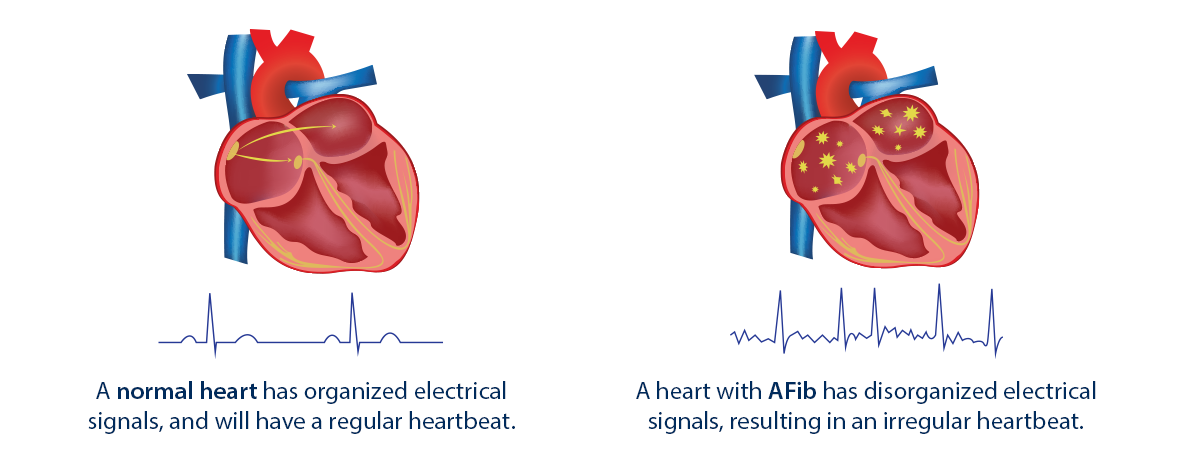Atrial Fibrillation (AFib)

If you’ve ever run up a flight of stairs or chased a tennis ball across the court, you know what a pounding heart feels like. But for the 2.7 million Americans who suffer from atrial fibrillation (AFib), a racing heart is a way of life. Simple tasks like getting out of bed or getting up from a chair can cause dizziness, weakness, shortness of breath or heart palpitations.

What is AFib?
AFib occurs when rapid electrical signals cause the heart’s two upper chambers (atria) to contract very fast and irregularly and beat out of coordination with the lower chambers (ventricles). When you have AFib, you might notice a skipped heartbeat, and then feel a thump, followed by your heart racing for an extended amount of time. These symptoms may be accompanied by shortness of breath and fatigue.
AFib is an arrhythmia (an abnormality in the timing or pattern of the heartbeat, causing the heart to beat too rapidly, too slowly, or irregularly) that can lead to blood clots, stroke, heart failure and other heart-related complications. The incidence of AFib increases with age and commonly occurs in those over 60.

Living with AFib
Many people with AFib live normal lives and one episode of AFib usually is not fatal. But AFib can cause strokes or lead to heart failure, which can be deadly. AFib puts patients at five times greater risk of having a stroke, and these strokes can be more severe than strokes that occur from other causes.
When you have AFib, your physician will likely consider medications to:
- Prevent blood clots
- Slow your heart rate
- Control your heart rhythm

AFib Symptom Tracker
Atrial Fibrillation, or AFIB, symptoms can appear and worsen over time. It is important to track and discuss changes in your symptoms with your physician. Utilizing this symptom tracker tool will help you record your episodes of unusual heartbeats, shortness of breath, and feelings of dizziness. When using the tracker tool, make sure to compare your answers every 6 months.

Download the Free Resource
Access a printer-friendly version of the resource to reference later.